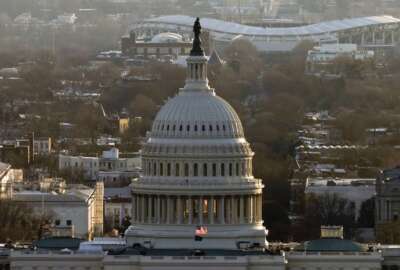Furloughs & Government by Part-timers!
If the government is shut down next week, Congress and the White House will remain open for business and in a pay status so they can work out a deal to reopen the...
If the government is shut down next week all is not lost.
The important thing is the power struggle between Republicans and Democrats inside the most important entity of the government is that is run by part-timers. The shutdown issue is not about your petty concerns about things like being able to feed your family or pay the rent. No, bigger things are at stake here.
The good news is that if there is a shutdown Congress (and the White House staff) will remain in a pay status. Staying on the job while you are furloughed without pay will enable them to eventually work out a deal to reopen the government they shutdown because they couldn’t work out a deal! (All this makes sense if you’ve spent a lot of time in Washington.)
Many members of Congress returned to work yesterday after a 10-day spring break. Not their first extended time-out this year, and not their last. But we are told that while they were away things got even more tense and the odds of passing another stopgap spending bill (the last one was for 3-weeks) are not so good.
The failure of this, and the previous, Congress to do its job inspired a federal economist to do a little research on how much (or little) time Congress spends on the clock. Here’s his essay. He wanted to call it “SHUTDOWN CONGRESS” but then concluded:
*”…No. Wait. You can’t shutdown something that’s not open all the time. In the last 10 years during the Monday-Friday workweek, the House of Representatives was in-session 1,298 days while absent 1,199 days – not including holidays – showing up for work 52 percent of the time. From 2001 to 2010, the House did not convene at all during 8 months, worked only up to a week in another 18 months, and worked 6 to 10 days during another 18 months. In other words, in 44 of 120 months, the House worked, at best, only half a month.
“The Senate worked a little harder, only missing 931 work days while convening 1,580 days. There were only 5 months in which they didn’t work at all, 11 months they worked up to a week, and another 15 months they worked 6 to 10 days. Incredibly, there was only one month out of all 10 years where the Senate worked every work day! At least that was one month more than the House of Representatives.
“(To be fair, in 6 of 10 years, the House did work on the weekend once, and in 3 other years since. The Senate also worked once on the weekend in 4 different years, twice in 3 years, and even on 3 weekends in one year. There were, however, three years between the Houses where they never pulled a weekend shift.)
“One simple improvement to Congress’s effectiveness would be to increase how much time Congress actually works at legislating – their constitutional reason for being. Good legislating takes time and that the cramped congressional schedule encourages dysfunction. That dysfunction is front and center as Congress threatens, yet again, to shut down the government after failing to pass a budget since last year, a year in which the House and the Senate were absent 51 and 38 percent of working days, respectively. True to form, this year both Houses have missed around 50 percent of work days, even with a shutdown looming.
“No wonder Congress can’t pass any legislation, they’re too busy doing their second job – running for re-election – than the one they’re getting paid to do – running this country. Perhaps if they worried more about their paying job, they wouldn’t have to spend so much time worrying about re-election in the first place!
“So Congress, look at the beam in your own eye before saying the rest of government is broke. Simply put, put up or shut up. Because unfortunately, you don’t qualify for a shutdown.
“Post Script.
“Of course, now that Congress has realized the optics of not being on the job for as often this, they have started naming their days out of session as ‘constituent work week’ etc. But it still looks and quacks like a duck, because it is often mostly about being out in front of their constituents for re-election purposes. As a House Republican transition member recently said (as reported in The Hill), there is pressure for Congress to be in Washington less, because they believed not seeing the members in the district caused members to lose.” A Federal Accountant
To reach me: mcausey@federalnewsradio.com
Nearly Useless Factoid
by Suzanne Kubota 
“Comfort food fights loneliness,” is the upshot of a recent study published in the journal Psychological Science and reported by UPI. NUF notes perhaps that’s why it’s called “comfort food,” and please pass the mac and cheese.
MORE FROM FEDERAL NEWS RADIO
Roth TSP option delayed
The TSP Roth 401(k) option is still an option, but it’s going to take a little while longer. The Federal Retirement Thrift Investment Board has decided to push back the launch of the highly-anticipated program from January 2012 to April.
TSA fires spell-casting Wiccan
Other headlines from this morning’s Federal Newscast include: USPS names the new deputy postmaster, Performance data are changing the VA, NASA’s deal with SAIC may top $1.3 Billion.
OPM offers database of job candidates with disabilities
The list includes search capability and offers real-time updates as new candidates are added.
Copyright © 2025 Federal News Network. All rights reserved. This website is not intended for users located within the European Economic Area.





